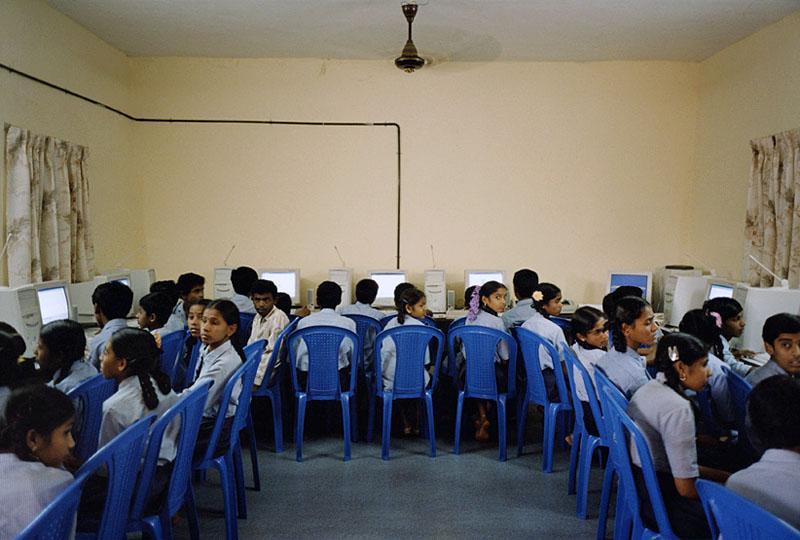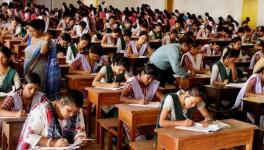NEP Does not Fulfil Educational Requirements of India: Anita Rampal

The country is witnessing rapid transformations in higher education as the University Grants Commission (UGC) has dictated several changes to the central universities, including FYUP, CUET, and pursuing two full-time programmes at the same time, among others. The teachers’ and students’ groups have expressed their apprehensions about the changes and educational needs of the country. NewsClick interviewed leading educationist Anita Rampal to understand these changes better. Here are the excerpts from the interview:
NewsClick: We are witnessing a slew of changes in higher education where the UGC has asked central universities to implement measures like a common university entrance test and a four-year undergraduate programme. The teachers have expressed their apprehensions. Student groups say that FYUP would bring an extra burden of one year. As an educationist, how do you see these changes?
Anita Rampal: We are concerned about these changes, and it is not limited to four-year undergraduate programmes alone. It is being advised that there will be an Academic Bank of Credit, and students will be free to earn 50% of credits from the institutions where they are enrolled, and half of the credits could be earned from other places, be it other institutions or online programmes. It’s a messy formulation. How would a programme course form in this situation? Central universities, including Delhi University, are renowned for their courses. In the present scenario, a student is treated like a customer, and he can choose whatever he wishes to get from his own institution or other institutions. I think it would be detrimental to all courses in central universities.
As far as CUET is concerned, I think we need to take two points into consideration. Universities have been taking entrance exams to admit students to master’s programmes. I think there should be multiple stages like another test, interview, or group discussion to evaluate students. Admitting students based on a single multiple-choice question paper is not good. Our theories of Education suggest that a single competitive exam on a bigger scale only sees your social advantage, and it does not evaluate you on your understanding. If this type of entrance exam of multiple-choice questions is applied to professional courses like B. Ed and M. Ed, and our hands are tied, it would not serve the purpose of creating good teachers. We have seen that the students who are preparing for competitive exams to crack civil services and other similar exams often get selected in these courses. They are cracking other exams because they have rigorously practised for it. We call the coaching industry a shadow market because they prepare students in a certain way, ask specific questions, and these tests do not evaluate students on their knowledge and understanding. So, it’s not a different situation from where students got admitted on high cut-off marks!
NewsClick: For a long period in the history of post-Independence India, it was understood that education is a means to serve the nation. Is this definition changing with the advent of the National Education Policy (NEP)?
Anita Rampal: Obviously. The policy document suggests that it intends to create a global superpower where citizens would be a part of this knowledge society. How many citizens can become part of this global society? The policy suggests that there would be competitive tests in 3rd, 5th and 8th standards, whereas the Right to Education categorically banned such tests. It asked for continuous evaluation but advised to put students away from board examinations because these are prepared far from the domain of students. In CUET, you are asking students to prepare on the syllabus of CBSE, which is hardly taught in 20,000 schools across the country. Mind you, we are a federal structure where the states have the autonomy to decide their syllabus. Through this test, we are asking students from states to put away their syllabi and prepare by reading CBSE syllabus. How fair and legal it would be now that the central universities would admit students on such syllabus only!
NewsClick: We shall return to the question of states later. We found that education propelled social and economic mobility for poor students who would come to educational institutions, get jobs, earn reputation and live a life with dignity. Does CUET challenge this vision?
Anita Rampal: I would like to emphasise on a more broader vision of education. With education, we see a transformation in society which is built on better social values. It’s a narrow vision to see that dducation can get you a good degree and a job. Our policies from the first years of independence suggest that constitution should be a pillar for education. Our founding fathers took a revolutionary decision that every citizen would vote to elect the government. They did not discriminate on the basis of caste, religion and gender. They also understood that the citizens must be educated to perform their democratic duties diligently. This is why they chose free and universal education for citizens for the first ten years. Education is not a privilege. So, it is very critical for the formation of a democratic society where we look forward to equality.
NewsClick: Is the present dispensation running away from this responsibility?
Anita Rampal: Yes. I think the government is of the opinion that the wealthy will make way for themselves, and for the rest of the sections, they will be evaluated on learning outcomes. We have strong objections to it. There is no emphasis on inputs. Without it, can there be any learning? It is obvious who would be the losers in this game. There is already stiff competition. If you introduce more competition, the vision of equality in society and serving the nation gets a backseat in the whole scenario.
NewsClick: I was reading your blog in which you argued by citing the work of Malcolm Gladwell that many Nobel prize winners came from average institutions. In India, we see that the government wants institutions to rank in the top 100 institutions across the globe. It is dedicating additional funds etc. to enable them to get such coveted rankings. Western institutions have their own history, which enabled them to get such rankings. Do you think this rat race would hurt our institutions?
Anita Rampal: We need to see our requirements. Diversity, democratisation, and inclusion are our benchmarks, not the number of research papers and patents registered. If we get involved in this competition, we will forget our vision of inclusion. In our understanding, quality and equity go hand in hand. If we start excluding people based on their incomes and education, it will not serve our purpose.
NewsClick: The current structure of FYUP suggests that a student can directly enrol into a PhD programme if he/she gets a 7.5 CGPA. Teachers argue that the first three semesters consist of common modules, and in the rest of the five semesters, students will learn core subjects. Do you think it would be possible for students to emerge as research scholars in such a short period?
Anita Rampal: I think there is much haste in bringing transformation in education, but it does not work this way. While framing education policies, we need to look at our requirements and not what’s happening in America! Why should we have four-year undergraduate programmes? There was no academic debate over it. Delhi University already did such an experiment, which later turned into a disaster. Our best teachers do not get into it. So, the responsibility is given to others who find it easier to lift course contents from other universities. Did we consult our best academicians? The problem is that we start implementing these courses coming through bureaucratic channels. The students at Delhi University come from distant corners of the country and live in expensive PGs. Why are we putting extra burden on them? It hurts us because, through this mechanism, many students who deserve education would be excluded. Then, bringing them straight away to PhD programmes is beyond comprehension. Masters’ courses serve their own purposes. The need was to make them more challenging.
NewsClick: We are also witnessing changes where the NCERT has trimmed chapters related to democracy and diversity, the Mughal period, impact of globalisation on agriculture. Some academicians say that it’s a communal assault on our education system. How do you see it?
Anita Rampal: We are concerned about these changes because there is already a tense situation where identities of caste and religion have emerged forcefully. The students of colleges are facing this challenging situation. The chapters would have helped them understand reality through education. The policy has a blanket definition of tribals, dalits, and Muslims as Socio Economically Disadvantaged groups. The chapters were part of critical pedagogy where students could learn about the state of my country despite their background. The children could understand each other and their backgrounds easily. Doing away with such wonderful chapters will be detrimental to all. That a student can have a democratic understanding, which our constitution envisions, is no longer a priority. We are dismissing our legacy, and I am reiterating that this training in diversity is essential for every child despite their religion, caste or gender.
Get the latest reports & analysis with people's perspective on Protests, movements & deep analytical videos, discussions of the current affairs in your Telegram app. Subscribe to NewsClick's Telegram channel & get Real-Time updates on stories, as they get published on our website.






















